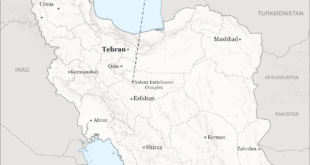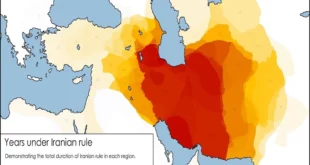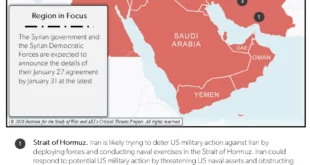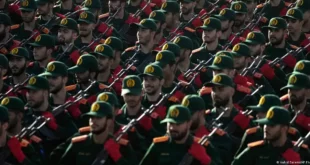TEHRAN — Mohammad Quchani has worked for 11 newspapers that were closed by the Iranian authorities and most never reopened. So he won’t predict how long the daily which he launched last month as editor will survive.“It depends on political issues and it also depends on how the newspaper proceeds,” the 30-year-old said in the central Tehran offices of Ham Mihan (Compatriot).
For newspapers like Ham Mihan which back the ideas of Iran’s liberal-leaning reformist camp, avoiding closure demands a careful balancing act —pushing the boundaries of criticism but staying within sometimes obscure political “red lines”.
The situation is more nuanced than the image of Iran portrayed by critics in the west, of a system that represses all critical opinion. There are Iranian commentators who even see signs of a fragile revival for reformist publications.
But journalists say it is still easy to fall foul of the authorities — particularly since President Mahmoud Ahmadinejad came to power in 2005 with speeches against the West and those he sees challenging the values of the 1979 Islamic revolution.
Sharq, the reformist daily Quchani previously worked for, was closed in September for a range of offences, which included defying demands that it replace its managing director, who was accused of blasphemy and insulting officials.
At the time, some journalists saw the move as part of the government’s efforts to silence any opposition — a charge officials dismiss, saying the government welcomes criticism.
Initially, many of the Sharq journalists launched a new title — following a pattern that emerged in the late 1990s when dozens of reformist newspapers were shut, only to be opened under a different guise, some publishing for just days. The authorities quickly saw the newspaper as a thinly veiled version of Sharq and shut it. But Sharq fought its closure in court and won. In May it republished.
Â
No-go areas
Â
“We will do whatever we can not to have any legal problems.
We will respect those ‘red lines’ that we can understand, not to pass beyond them,” said Managing Director Mahdi Rahmanian, 40, whose removal had originally been demanded by the authorities.
Iran’s nuclear row with the West is a subject which requires “sensitive and careful” coverage, he said. Judiciary news “we are a bit careful about”. He is wary about military stories. And other ministries “complain this is our red line”.
“But our problem is sometimes we don’t know where are the prohibited areas,” he added.
Other journalists say there is a level playing field for all newspapers. Amir Mohebian, political editor of the conservative Resalat, says that broadly “we have freedom to publish our ideas, both … reformist and conservative.”
Even without the challenge of no-go areas, battling for readers is tough: Iran’s biggest circulation daily, Hamshahri, sells some 400,000 copies a day, compared with Sharq’s 70,000, in a country of about 70 million. Hamshahri is an organ of Tehran council and its view has swung from reformist to conservative with swings in the make-up of the municipality.
Smaller papers fight for advertising. Struggling to make ends meet with newsstand sales, they often need a wealthy patron.
Quchani said advertisers were being scared away by “the authorities” from buying space in his newspaper, a charge that could not be independently verified.
Some see the republication of Sharq and launch of Ham Mihan as a modest revival for Iran’s reformists, who want more social and political freedoms and better ties with the world.
Iran is now under UN sanctions for not stopping work that the West says is to build atomic bombs, a charge Tehran denies.
“This sort of sign shows that, in spite of the hardline pressure in the political field, the pragmatist branch of the political system is still working,” said Tehran University professor Hamidreza Jalaiepour.
Ahmadinejad’s opponents — a group that increasingly spans both reformists and more pragmatic politicians like former President Akbar Hashemi Rafsanjani — have recovered some of their poise since his presidential victory. In the city council elections in December, Ahmadinejad’s supporters were roundly trounced, particularly in Tehran.
But others say the recovery of a more moderate voice in Iranian politics is fragile. Analysts point to the arrest of US-Iranians on charges of spying as the latest sign those who oppose rapprochement with the West are still in charge.
Iranian blog sites, which often carry reports and opinion, are regularly blocked by the authorities.
Some say the survival of the two reformist newspapers may be partly because the authorities want to show the world Iran allows political debate, particularly as groups position themselves ahead of the 2008 parliament elections.
Others say it is a purely legal matter and that papers like Sharq and Ham Mihan have shown a greater readiness to stay within the “red lines” so that they will at least have some voice to influence debate ahead of the March 14 polls.
“When we get closer to the parliamentary election, we will see them publish because, I feel, they accepted to work inside the framework of the law,” said Mohebian.
 Eurasia Press & News
Eurasia Press & News



